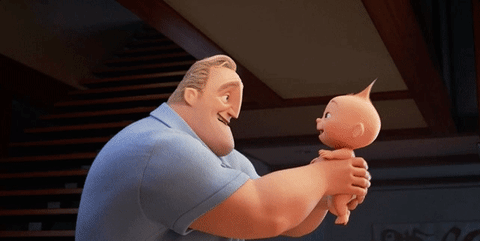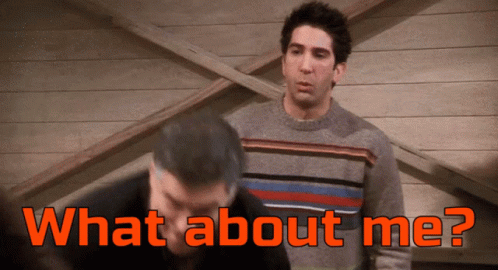Telling your kid his medical origin story
A witch posted this question online—
“Witches whose kids experienced something traumatic as babies: How did you tell them about it and how old were they when you did it? My son is three now. His hair hides his neurosurgery scar--it's not something that he would see unless we helped him with a mirror, so there hasn't been a moment where it kind of naturally comes up. But I also don't want him to be like eight years old and wondering why we never told him what happened. I also don't want this to be a loss of innocence type thing (which was something I struggled with when he was going through it, that babies shouldn't have to know that kind of pain). I just don't know how his little brain would process the information and when and how it's appropriate to go there, but it's something I've been thinking about a lot lately.”
If your child survived something traumatizing or dangerous, how did you explain it to them later on? Some other witches had some good perspectives to share from scary times:
“My daughter, who has atypical partial benign epilepsy, had to have a sedated MRI at 3 and then she’s had a few EEGs from age 3-5. She now takes anti seizure meds twice a day. I was pretty straightforward with her at age 4 and said her brain is doing some funky stuff and the meds help her brain work better and help her get good sleep. We talked about some of the stuff that is hard for her because of what her brain does at night and she really does seem to get it. So I’d keep it simple and to the point. If it’s not something he NEEDS to know at age 3.”
“My kid almost died from dehydration due to rotovirus when he was about 14 months old. He went into shock, he was hospitalized, all sorts of drama over a condition that's actually very simple to treat but that will kill hundreds of babies all over the world tonight. They had a hard time stabilizing him (his case made grand rounds at the hospital!) At the time this happened, there was a rotovirus vaccine introduced and then pulled from the market due to side effects (I think there's a different one out now.) Into this maw, Lysol came out with a commercial in which the announcer said ‘rotovirus’ in a menacing tone, and it has become a joke ever since. My kid had a fear of medical personnel for a while after that, but he got over it and has been in amazing health ever since. He graduated from college in May. As cases go, we had an easy one, but my husband will still say ‘rotovirus’ and we will all crack up.”
“My kid has congenital partial facial paralysis, which means he cannot close his left eye completely and has asymmetrical facial expressions. I started talking to him about this before he could even talk, because I knew it would be something he'd literally confront daily for the rest of his life. The conversations have gotten harder (for me) as he gets older and becomes more and more aware of his appearance. I say take advantage of this matter-of-fact stage. ‘When you were a baby, a team of amazing doctors helped us make sure your brain had enough room to grow in your head, isn't that awesome? They knew your brain was going to get bigger, and they had to move some bones to make enough room. Do you want to see the spot on your head where the doctors did that?’”
“We talk to my daughter all the time about her time in the NICU, her (super simple) surgery, and how her body is a bit funky in some ways. We have always been super matter of fact about it and kept it simple, but it does help her process things. Like when all the girls at skating can just simply lift one foot up and she has to fight it for five minutes, she no longer gets upset but knows she will get it eventually. We will just have to go about it in a slightly different way. So I say talk about it while he is little and keep it simple. He will let you know when he needs more intel.”
“My son is an adoptee and he definitely had trauma early in life--separation from his birth mom at birth, then a few weeks in the hospital for heart surgery right after birth. Then leaving his amazing foster family at age 17 months to come home with us. Everything I've read echoes that it's not really one big sit-down Talk, but an ongoing thing that you can start bringing up right away, in age-appropriate language. We made him a little photo book that told his story, which helps. And we honor his feelings and don't try to smooth them over--if he talks about how it was sad or scary, we tell him that we know it was, that it makes sense to feel that way. Humans can be incredibly resilient, and also trauma can crop up in odd ways or have unexpected effects. I think opening the lines of communication and treating the subject in a matter-of-fact, we're-open-about-this way really makes a difference.”
“If this helps at all - my mom constantly talked about my sister and me being born at 29 weeks. So much so it unfortunately became a part of my identity until adulthood when I could conscientiously separate from it and the reality it happened to me, but it didn’t have to define me, or for that matter be a source of anything other than, yeah cool that’s my story, what’s yours. My mom also totally sucked and made it about her: her loss, her grief, her babies being victims etc. So, for good or bad he’ll remember YOUR reaction and telling the story and experience, not his own. So shape only what you want him to FEEL out of this would be my only two cents, I.E. strength, pride, gift of life, etc.”
“My mom was frying rosette cookies on the kitchen table in one of those plug in skillets and got up to answer a phone call and 3 year old me was running around and tripped over the cord, resulting in some serious burns that required skin graft surgery. I knew what was going on at the time, but as a teen/adult, I don't remember it - just that I got to have my feet up for a while and got to drink out of bendy straws. I'm sure this is a much more traumatic memory for my mother and I feel like it will be the same way for your son. I think being matter of fact and showing pictures if he's curious is a great idea - you can also let him know that there are such great doctors out there who are able to help when kids and adults are sick!”
“My older daughter is now 6, had about a dozen surgeries and six months of hospital stays between 0 to 3. One thing she loved at that age was to look at photos of her from the hospital. I put them into an album and we read it a TON before her third open heart surgery at 2.5 but also revisit it often whenever she seems to need to process a bit of what happened. To my mind, this is the kind of thing that is never one big sit down for The Talk moment -- you weave it into their stories when you look at baby pictures, talk about going to the doctor, etc. If we see an ambulance, I might say ‘Oh that's just like the ambulance you rode in when you were a baby!’ Sometimes it opens up a conversation, sometimes it doesn't. We are only just now at age 6 starting to think about how to talk about some of the more serious aspects of her condition and we're doing that with the help of a trained pediatric trauma therapist. But we've worked with the therapist for almost 3 years and she has always reinforced the importance of being matter of fact and offering age-appropriate info and just making this experience a part of their story. I should also add, the whole ‘be matter of fact and breezy about the most traumatic thing that ever happened to your baby’ advice is pretty hard to put into practice if you're still working through your own stuff about it! So don't feel bad if you can't go there yet, or if you have to keep it super basic right now. Reaching to find some semi-calculated but still natural-feeling segues into it is worth it, I think. Maybe when you next go to a regular doctor, or drive by the hospital, etc. He may be fascinated bc it is this crazy unique thing that happened to him! Or he may totally not care, and that is also great.
Finally, there is a myth, often perpetuated by well-meaning doctors and nurses in hospitals that when kids have surgeries super young ‘they’ll never remember it.’ And it’s true - My daughter does not have literal memories of much of her ordeal. But the trauma still manifests in her emotional regulation, some sensory stuff and intense need for control around her body. Your mileage may vary, of course! What I mostly mean is: You may find discussing it all matter of factly and giving him some language for this part of his story reaps other unexpected, seemingly unrelated benefits. Because this did happen to him and, in some way, informed who he is.”

End credits
Thanks for reading Evil Witches, a newsletter for people who happen to be mothers of all kinds of people. If you're interested in possibly submitting or have any general questions just shoot us an email. If you know someone who'd like this sort of thing in their inbox about once or twice a week, please spread the word. You can follow us via Instagram or Twitter. I hope you consider spending $30 to support this work and gain some subscriber-only content. This week subscribers will get some witch-approved book recommendations so sign up today to make sure to get that issue!
One witchy thing





